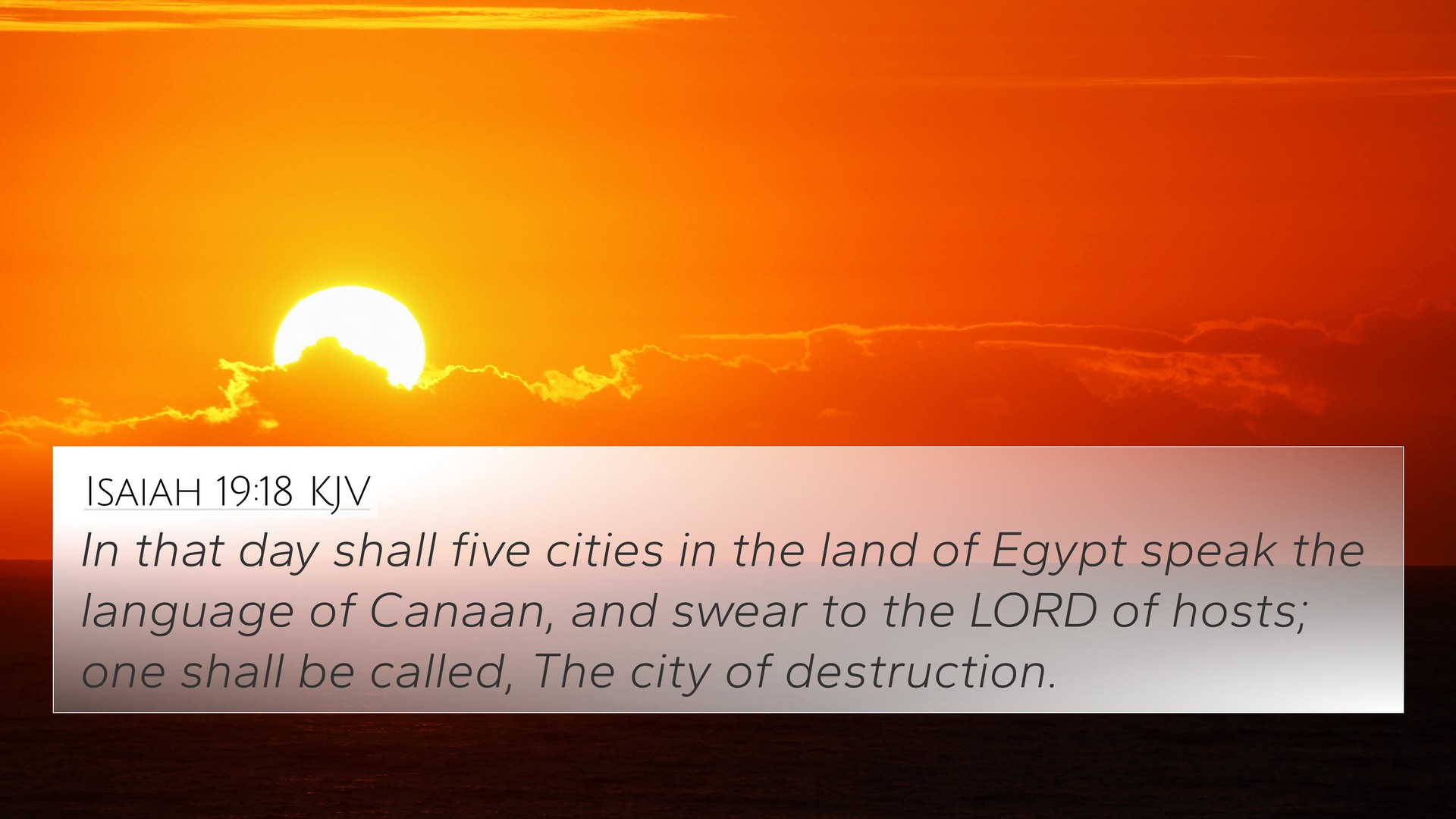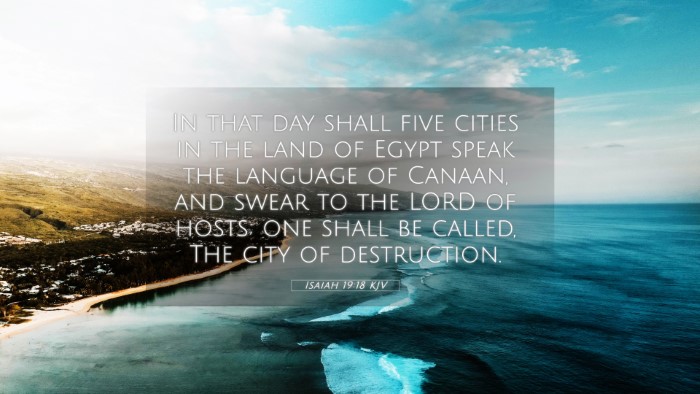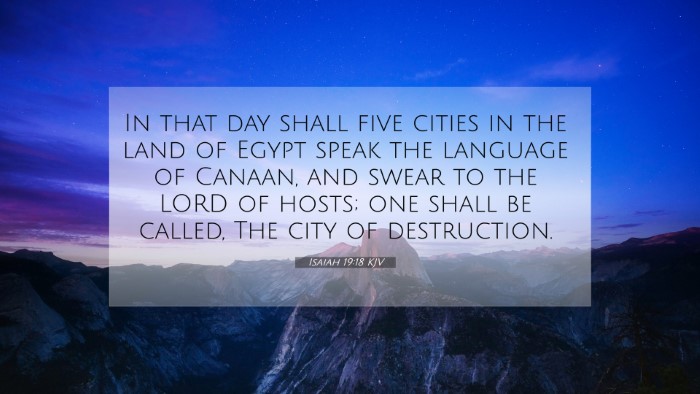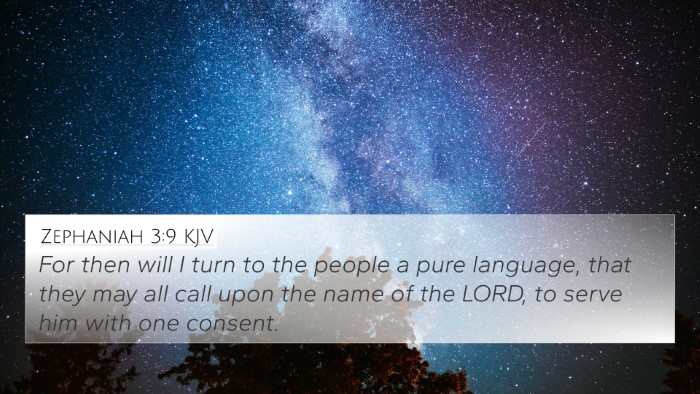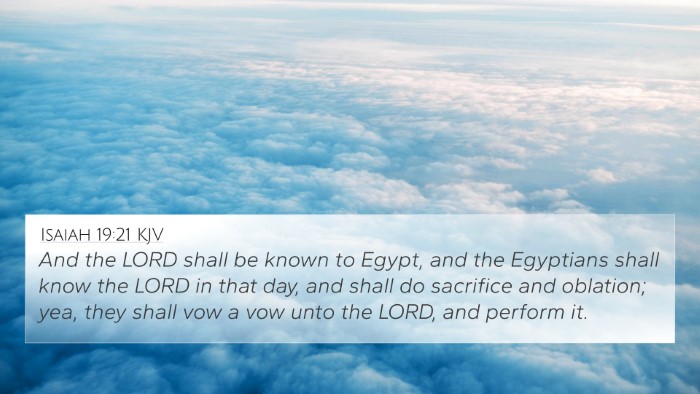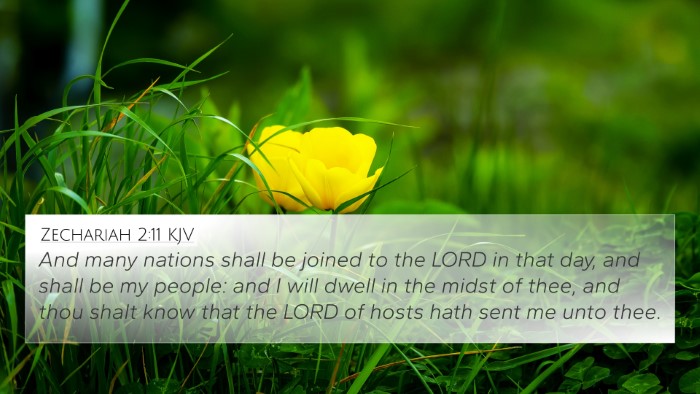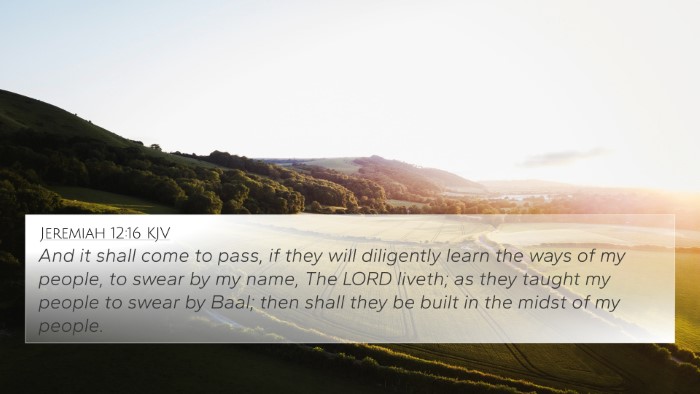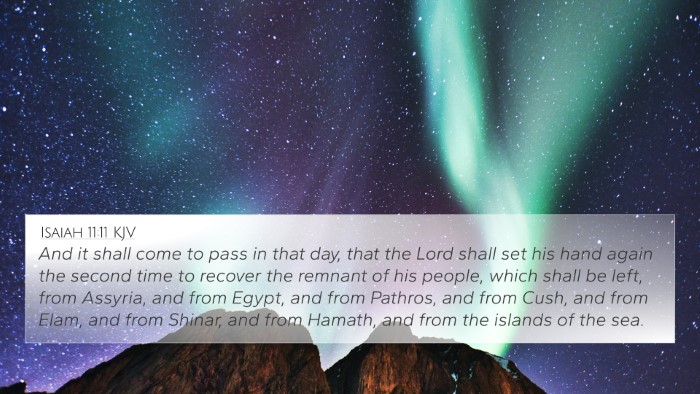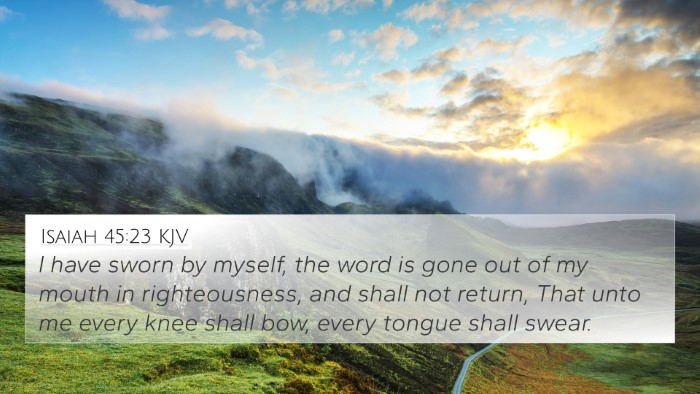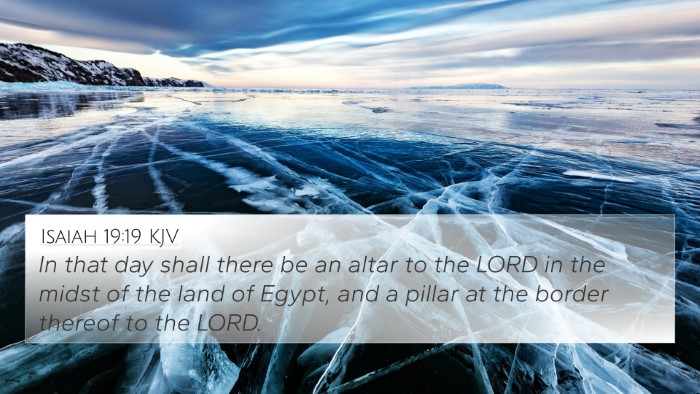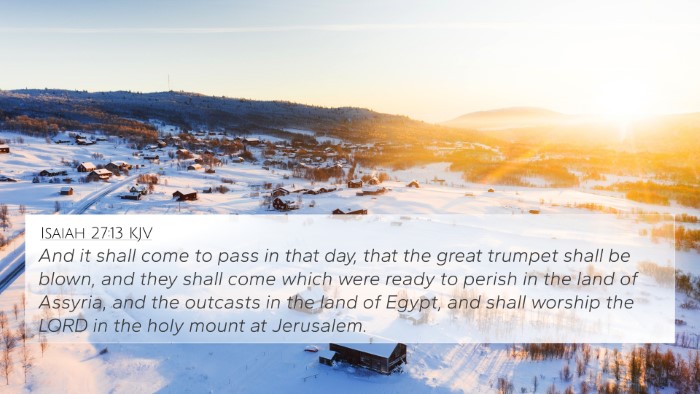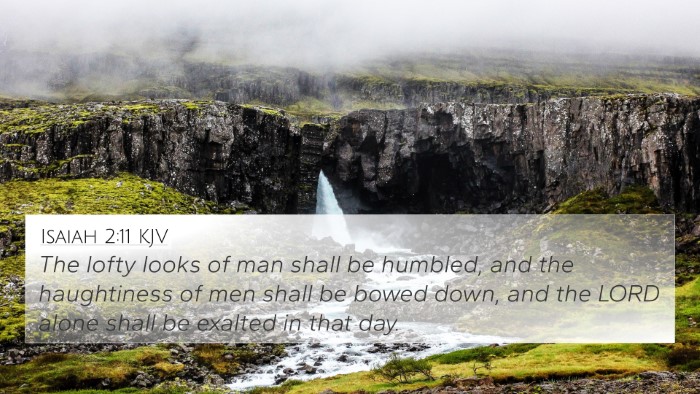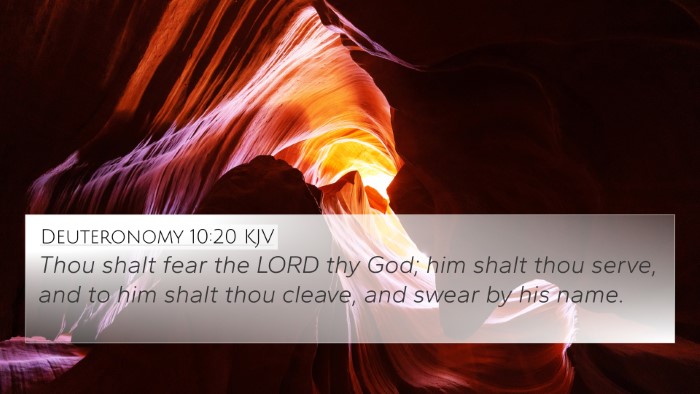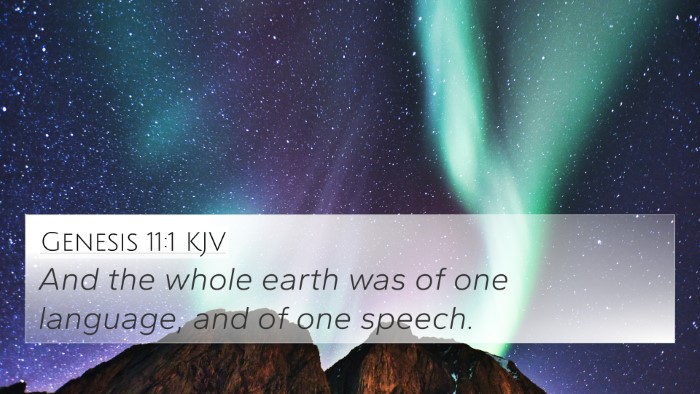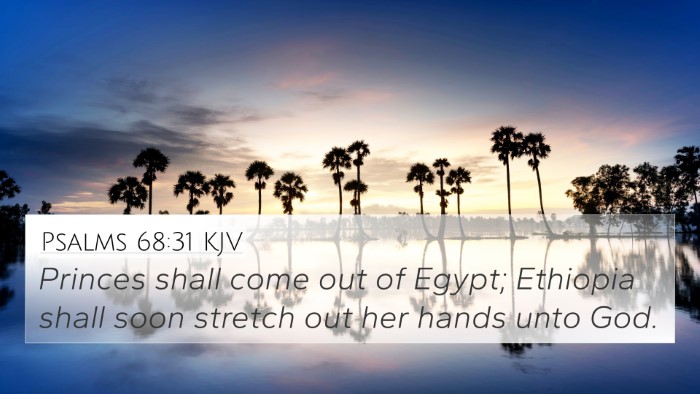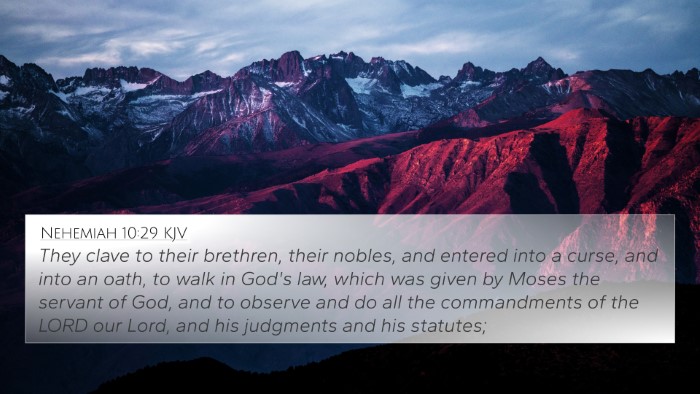Understanding Isaiah 19:18
Verse: "In that day shall five cities in the land of Egypt speak the language of Canaan, and swear to the LORD of hosts; one shall be called, The city of destruction."
Overview
Isaiah 19:18 presents a prophetic vision where cities in Egypt acknowledge the God of Israel. This transformation symbolizes a significant spiritual awakening and the inclusion of Gentiles into the fold of God's people.
Interpretation from Commentaries
-
Matthew Henry:
Henry emphasizes the radical shift from Egypt's idolatry to a recognition of the true God. The mention of "five cities" implies that this transformation, while remarkable, is part of a larger divine plan. The phrase "speak the language of Canaan" suggests adopting the values and faith of Israel.
-
Albert Barnes:
Barnes notes the significance of these cities as they represent areas once steeped in pagan worship now turning towards the worship of Yahweh. The “city of destruction” signifies profound change—an acknowledgment of past failures and a new commitment.
-
Adam Clarke:
Clarke presents a view that this prophecy showcases the advancement of God's kingdom. The cities are a symbol of hope where previously there was despair, and their speech in Canaan's language indicates unity among nations in worship.
Thematic Connections
This verse is deeply interwoven with themes of redemption, transformation, and the unity of nations under God. It emphasizes the connection between understanding the divine and societal change.
Cross-References
Isaiah 19:18 can be connected to several other Biblical passages that reinforce its themes:
- Isaiah 2:2-3: This passage speaks of nations flowing to God’s house, integrating the theme of universal worship.
- Isaiah 56:6-7: Here, the inclusion of foreigners in worship highlights the expansion of God’s community.
- Romans 15:10-12: Paul quotes the Old Testament to demonstrate the inclusion of the Gentiles in praising God.
- Psalm 87:4-7: This section celebrates the idea of nations being part of God's kingdom, showcasing God’s mercy towards all peoples.
- Zechariah 14:9: This verse confirms the Lord as king over all the earth, suggesting a future where all nations acknowledge God.
- Acts 2:11: The outpouring of the Spirit on the day of Pentecost included people from various nations, depicting a fulfillment of God's promise to unite diverse languages in worship.
- Philippians 2:10-11: Here, Paul assures that every tongue will confess that Jesus is Lord, echoing the unification theme from Isaiah.
Conclusion
Isaiah 19:18 depicts a future where entities once divided by culture and faith will unite in the worship of God, demonstrating how the overarching narrative of Scripture emphasizes transformation and inclusivity. This verse invites readers to explore the richness of Biblical cross-referencing, deepening their understanding of God's outreach to all nations.
Exploring Bible Cross-References
Utilizing tools for Bible cross-referencing enhances our study and understanding, allowing for an exploration of how different passages relate to Isaiah 19:18 and each other. Whether using a Bible concordance, a Bible cross-reference guide, or engaging in a cross-reference Bible study, readers can glean insights about Biblical themes and their interconnections. Understanding these links is crucial for comprehensive Bible study and sermon preparation.
Findings and Further Study
For those interested in thematic Bible verse connections, Psalm 87 andRomans 15 offer valuable insights. Identifying connections between Old and New Testament carries transformative implications for believers, illustrating the continuity of God's purpose throughout Scripture.
